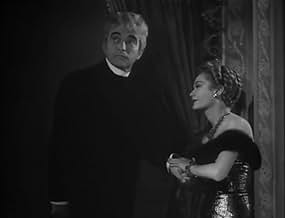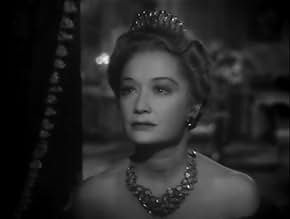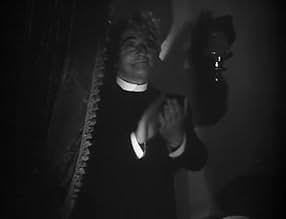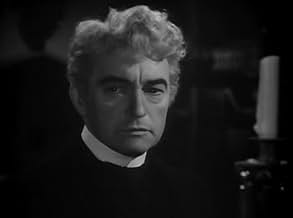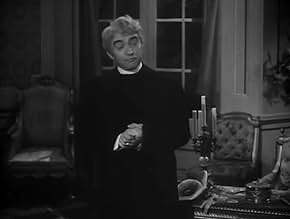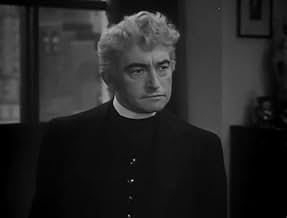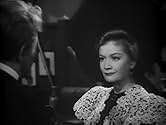Füge eine Handlung in deiner Sprache hinzuA messy divorce leaves Mrs. Leslie Carter shunned by Chicago society for being an adulteress and forbidden from having custody of her son. She's determined to return to her hometown in a few... Alles lesenA messy divorce leaves Mrs. Leslie Carter shunned by Chicago society for being an adulteress and forbidden from having custody of her son. She's determined to return to her hometown in a few years as a success and with enough money to fight to get her son back. In order to realiz... Alles lesenA messy divorce leaves Mrs. Leslie Carter shunned by Chicago society for being an adulteress and forbidden from having custody of her son. She's determined to return to her hometown in a few years as a success and with enough money to fight to get her son back. In order to realize her plans, she heads to New York with ambitions of being a great actress. Despite having... Alles lesen
- Auszeichnungen
- 2 wins total
- Dudley Carter
- (as Johnnie Russell)
- Mrs. Peabody
- (Nicht genannt)
- Miss Humbert
- (Nicht genannt)
- Man in Belasco's Outer Office
- (Nicht genannt)
- Observer on Courthouse Steps
- (Nicht genannt)
- Audience Member
- (Nicht genannt)
- Scenic Artist
- (Nicht genannt)
Empfohlene Bewertungen
I'm a real fan of Hopkins. I'm not a huge fan of 1920s or 1930s film, so my fascination with her is limited to the 1940s and beyond. Let's face it, she could deliver her lines as fast as a racing horse. And she excelled in doing so.
This is pure Hollywood fare. It flows as such. Tons of plot loopholes. Cliche dialogue. Over the top execution. Relax and enjoy. Stop over-analyzing.
The real Mrs. Leslie Carter had one of her final roles before her death in 1935's Becky Sharp, which may have played a part in Hopkins wishing to do this biopic. From what I can gather, much of the material in the movie is fictitious, designed to make Carter look like more of victimized saint, when naturally the truth is much murkier. One wouldn't also gather why Carter was considered a sensation, as all of the play reenactments in the film are hammy and phony. Hopkins never manages to be likable, and I say this as someone who has liked Hopkins in a number of other things. Rains also gets shout, scowl, yell, thrash around, and then shout some more. Speaking of bad wigs from The Howards of Virginia, Claude sports one here. The most worthwhile scene in the whole movie was a catty dinner scene at a boarding house for theatrical people.
Miriam Hopkins and Claude Rains give wonderful performances. Hopkins was a beautiful actress who really makes us feel for Mrs. Carter. Rains is great as the flamboyant, egotistical producer/writer/actor/impresario David Belasco, one of the great names in theater.
Though Mrs. Carter's second husband, Lou Payne, served as adviser on this film, it's a poor representation of the real events of Mrs. Carter's life. True, there was a much publicized and bitter divorce, and she was undoubtedly viewed as a scandalous character for that and for becoming an actress. However, she had custody of her son Dudley, so there was no custody battle. Once she broke with Belasco, she did not go back to him and, in fact, started working in vaudeville and actually made some films toward the end of her life. She did indeed marry Lou, and he became her leading man in many productions.
The driving force for Mrs. Carter in the beginning of this film is regaining custody of her son, but she finally realizes that in her time away from him, he is thoroughly bonded with his father. In the film also (and I'm not sure if it was true in real life) she traveled with her mother and lived in a theatrical boarding house, which gives the film some added interesting atmosphere.
Not a bad movie, probably not a depiction of the greatness of either Carter or Belasco. One of Mrs. Carter's most famous moments was in The Heart of Maryland, where she wore a wig with six-foot tresses. Off-stage, fans blew her hair as she hung 35 feet above the stage clutching the center of a bell to keep it from ringing. Quite a visual.
Mrs. Carter was a society socialite whose rather messy divorce and custody battle made her want to seek employment in the theater when she couldn't get a job doing anything else. After a few tries she hook up with David Belasco who molds her into a glamorous stage star from the turn of the last century.
What I found amazing in this whole film was that we never do find out just what in this divorce made her such a notorious woman. The film opens as the divorce proceeding is about to conclude, we never see what it was all about.
We do find out that the terms of the divorce gave her limited visitation rights to her son. That's given as the real reason for her determination to succeed as opposed to possibly trading in on her notoriety. A reason today's audience would definitely understand. In fact why was she billed as "Mrs. Leslie Carter" if it wasn't for the notoriety.
Miriam Hopkins as Carter and Claude Rains as Belasco give a good account of themselves. So do those two old gals Laura Hope Crews as Hopkins's mother and Helen Westley as the owner of the theatrical boardinghouse where they reside. Those two date back to when Mrs. Leslie Carter was a big name on Broadway.
Richard Ainley of the Ainley British theatrical family gives a wooden performance in a part that's underwritten as Carter's second husband. Wasn't Errol Flynn available?
Back in the 1890s divorce in and of itself was scandal. So why weren't we given the salacious details?
Wusstest du schon
- WissenswertesLouis Payne, the husband of Mrs. Leslie Carter in real life, coached Richard Ainley, who was playing him in the movie.
- PatzerNone of the Broadway plays mentioned in the movie were performed by Mrs. Leslie Carter. Her Broadway debut was in a play called "The Ugly Duckling" in 1890, not "The Way of Beauty." Her second play was "Zaza," not "The Lady From France." It is not known why the names of her plays were changed.
- Zitate
David Belasco: The scene is finished... either applaud or get out of the way.
- SoundtracksTwinkle, Twinkle, Little Star
(uncredited)
Traditional
Played offscreen at the start of Miss Humbert's school sequence
Top-Auswahl
Details
- Erscheinungsdatum
- Herkunftsland
- Sprache
- Auch bekannt als
- La dama de cabello rojo
- Drehorte
- Produktionsfirma
- Weitere beteiligte Unternehmen bei IMDbPro anzeigen
- Laufzeit1 Stunde 18 Minuten
- Farbe
- Seitenverhältnis
- 1.37 : 1
Zu dieser Seite beitragen



